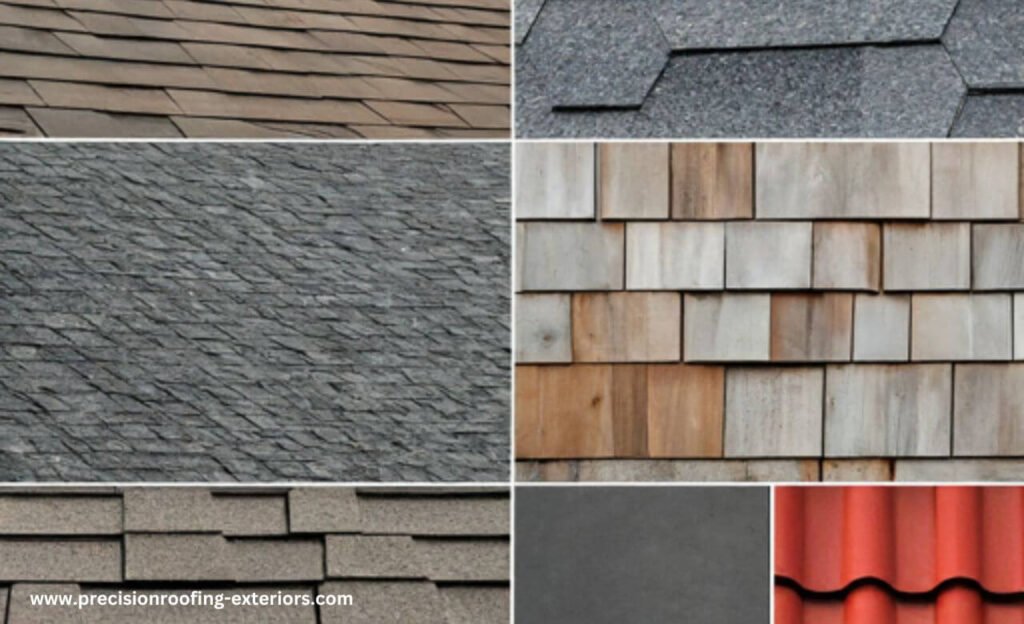The types of commercial flat roofing options have greatly increased as advancements take place in the roofing industry. While the main goal of a roof remains to make a shield over your property, with the introduction of flat roofing, lower utility costs are an added benefit. This blog discusses the types, key characteristics, and decisive factors of commercial flat roofing materials. The popular types of flat roofing materials include Polyvinyl Chloride, Thermoplastic Polyolefin, EPDM, Modified Bitumen, Metal roof, and Spray Polyurethane Foam.
Different Kinds of Commercial Flat Roofing Materials
A commercial flat roof is a horizontal, leveled roof. Sometimes, it has a slight slope, about less than 10 degrees, to prevent water accumulation. Let’s check out all the different kinds of flat roofing.
1. Polyvinyl Chloride
Polyvinyl Chloride, also known as PVC, is a single-ply membrane with polyester reinforcements and hot air-welded seams. It has a high resistance to chemicals, fire, and water, making it better suited for commercial roofs.
On top of that, the top layer of PVC is specially designed to be UV-resistant. This durable roofing material can last up to 30 years with proper care and maintenance.
However, the downside to PVC is that its production process has negative environmental impacts.
2. Thermoplastic Polyolefin
TPO is made using polypropylene and ethylene-propylene rubber, and similar to PVC, its seams are hot air-welded. Its lightness and flexibility make it a preferred material for commercial flat roofs. Since it is a blend of rubber and plastic materials, TPO is comparatively cheaper and easier to install than other roof types. Keep in mind that it is also susceptible to puncturing if hit forcefully with sharp objects or exposed to extreme weather conditions.
3. EPDM
EPDM, short for Ethylene Propylene Diene Monomer, is a durable roofing material made from synthetic rubber and is best suited for flat or low-sloped roofs. This material expands and contracts with temperature changes and can last up to 50 years, handling wear and tear exceptionally well. Additionally, it requires lower maintenance and helps reduce energy consumption. For optimal performance, consider professional EPDM rubber roof installation.
4. Modified Bitumen
Modified Bitumen is the polished version of the Built-Up Roofing (BUR) system. It combines asphalt and chemical polymers, making it a flexible and weather-resistant commercial flat roofing material. Furthermore, due to its multiple layers, modified bitumen can easily sustain heavy foot traffic and requires less maintenance.
5. Metal Roof
Metal roofs were one of the first materials used for commercial flat roofs. They are typically made from aluminum, steel, copper, or zinc, making them weather-resistant and energy-efficient. Additionally, metal roofs come in various colors that match the building style. However, they can be costly, require professional installation, and tend to get noisy during storms. For optimal performance, consider professional metal roof installation services.
6. Spray Polyurethane Foam (SPF)
SPF roofing is formed after combining liquid chemicals, polyol, and isocyanate. Spraying them forms a seamless, waterproof layer. This type of commercial flat roofing is excellent for insulation and remains an environmentally friendly and sustainable option. The only negative aspects of SPF roofing are that it requires frequent upkeep and that the chemicals are hazardous, so it is best to let professionals take care of it.
Which Type of Commercial Flat Roof Is Right For You?
Since we have discussed the different types of commercial flat roofing materials, it is time to help you decide which is best for you. These are the factors you need to consider before choosing.
- Climate: A rooftop is the one part of a building that remains in direct contact with sunlight and weather conditions. So, if your location experiences extreme summers, PVC will be a better choice, while EPDM is better for areas with high rainfall.
- Budget: Budget plays a big role in making a big decision, like about roofing materials. While it is important to find something that does not cost you a lot, you also need to consider the life of the roofing to get a better idea.
- Rooftop Traffic: Different types of roofing materials handle foot traffic differently. So, if you choose the right one, you will be able to extend your roof’s lifespan.
- Environmental Impact: Picking an energy-efficient roof allows you to cut down future heating and cooling costs.
If you find it difficult to decide which of the different materials suits your commercial building better, get in touch with experts at Precision Roofing!
What are most commercial flat roofs made of?
What is the best roofing for commercial buildings?
Steel metal roofing is considered the best option for commercial buildings due to its cost-effectiveness, durability, and low maintenance. It offers a long lifespan and strong resistance to harsh weather conditions, making it a reliable and efficient choice for various commercial applications.
What is the most common for commercial roofing?
Metal roofs are the most common choice for commercial roofing due to their durability and versatility. Popular options include corrugated galvanized steel, metal tile sheets, and combinations of zinc, aluminum, and silicone-coated steel. These materials offer strength, weather resistance, and a range of styles to suit different commercial needs.
Conclusion
An ideal commercial flat roof must be durable and enduring to withstand tough conditions, weather, and unforeseen problems. Popular flat roofing materials include PVC, TPO, EPDM, modified bitumen, metal roof, and SPF. For expert advice and quality installation, contact our roofing company today for more information.

